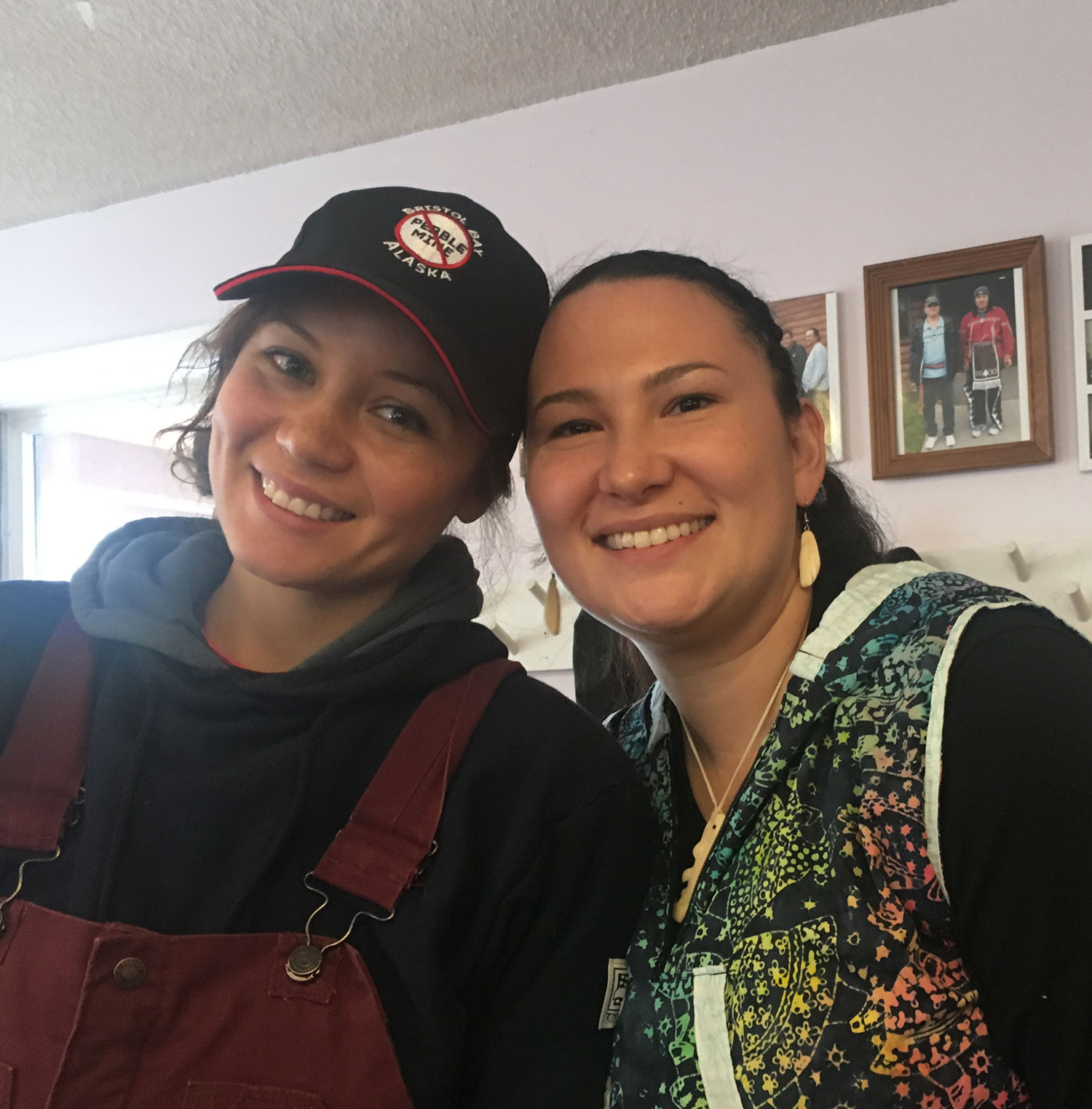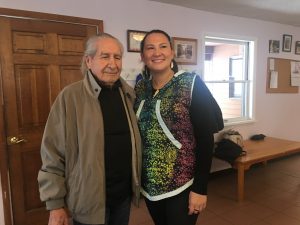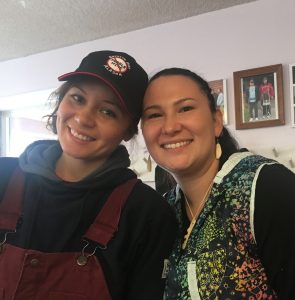
Onoñda’geh Oñgwaweñna’
Wendy Gonyea

In December, Onondaga received visitors from the North. AlexAnna Salmon and Clint Roeh are on a vital quest for solidarity in protecting land and water in Southwest Alaska.
AlexAnna Salmon and Clint Roehl traveled from Igiugig, Alaska. “Igiugig is the name of our village which means ‘Keeper of the Southern Corridor,” Salmon and Roehl shared with the people welcoming them to Onondaga.
“Many villages in rural Alaska are struggling to continue the way of life of their ancestors,” said Salmon. “It is difficult to continue our ways while corporations and commercial fisheries gobble up land and pristine waters for-profit ventures.”
For the past 15 years, her small village of 70 people and others have been fighting to stop a gold and copper mine, Pebble Mine, from opening at the headwaters of Bristol Bay. Their land is directly downstream and the spawning ground for all species of salmon, 81 miles of a salmon stream.
Although the devastating effects of mining are well documented, the current federal government has rescinded protections under the Obama administration. The Trump administration is pulling back restraints in an effort to clear a major permit for the Pebble Mine, perhaps as soon as summer 2020. The Pebble Mine proposal includes a 187-mile long pipeline, and an 84-mile long road crossing some 200 streams, and building dams and embankments that would block salmon runs.
“We have a complicated background with our village as well as many other indigenous villages in Alaska,” Salmon explained. “The lands of our people were divided into corporations by the Alaskan Allotment Act in 1971. And even before that, the United States ‘purchased’ our lands from Russia in 1867!”
So today, her people own shares in the corporations that operate under a state charter.

Salmon added, “So far two corporations have sold out to the Pebble Mine speculators.”
In Alaska, there are 229 Federally recognized tribes. “But in the State there are but just two reservations and the state of Alaska does not recognize all of the rest of the tribes,” Salmon said.
In the Yupik language, the word for fish means ‘food’. Salmon and Roehl emphasized that they are in a constant struggle to keep the waters and fish healthy.
Roehl added, “We want to keep a healthy environment for the people, fish, seals, and all of the life that depend on water to live.”
Salmon continues to run traditional fish camps for the children and neighboring communities to keep their traditional ways of sustenance alive.
“We are grateful for any support we receive,” said Salmon and Roehl. “We have a website where people can find out more and contribute anyway they can.”
Nyawenha to our guests, AlexAnna Salmon and Clint Roeh, for their work to keep Mother Earth healthy. If you would more information or would like to help, please visit the Bristol Bay Defense Fund at the United Tribes of Bristol Bay website at www.utbb.org
